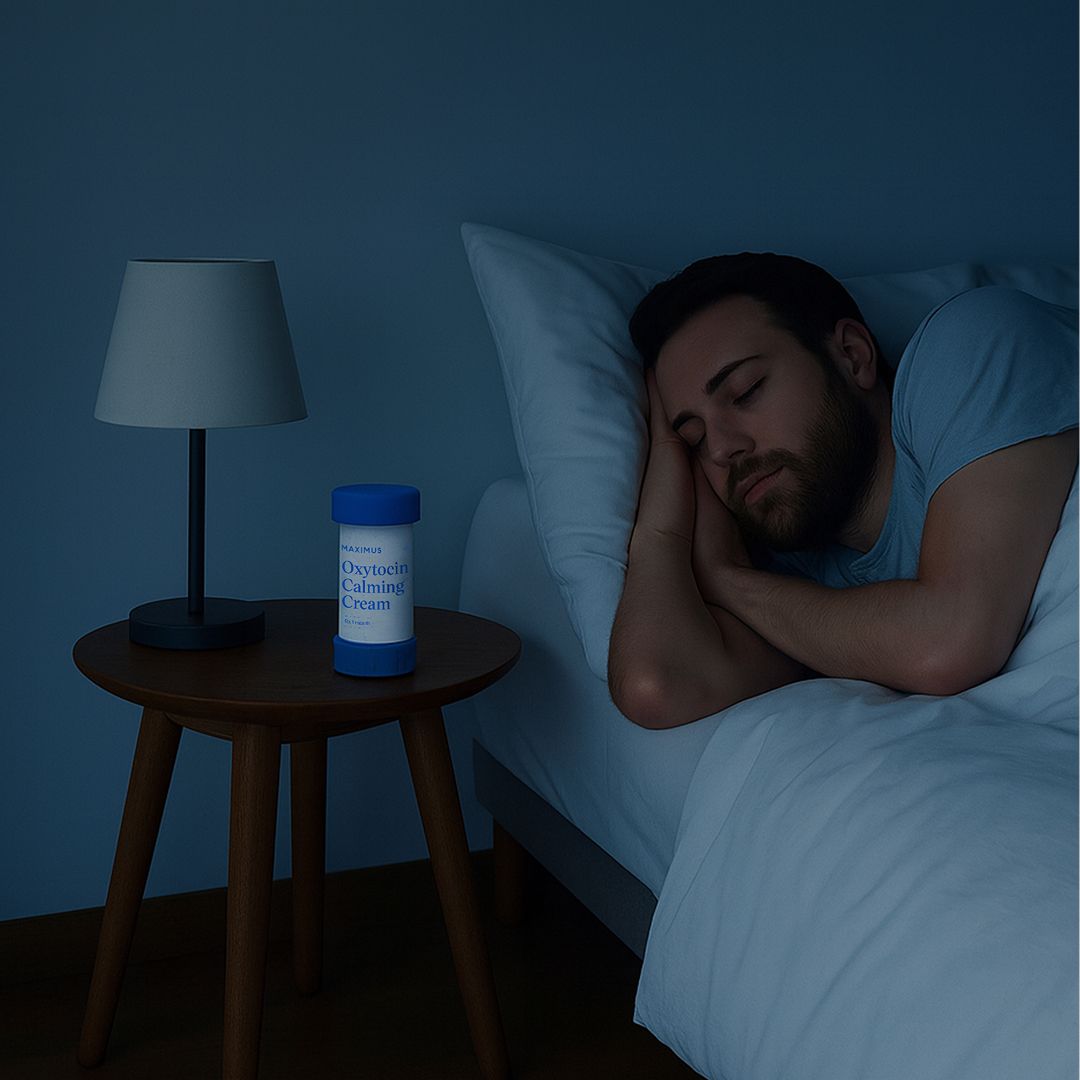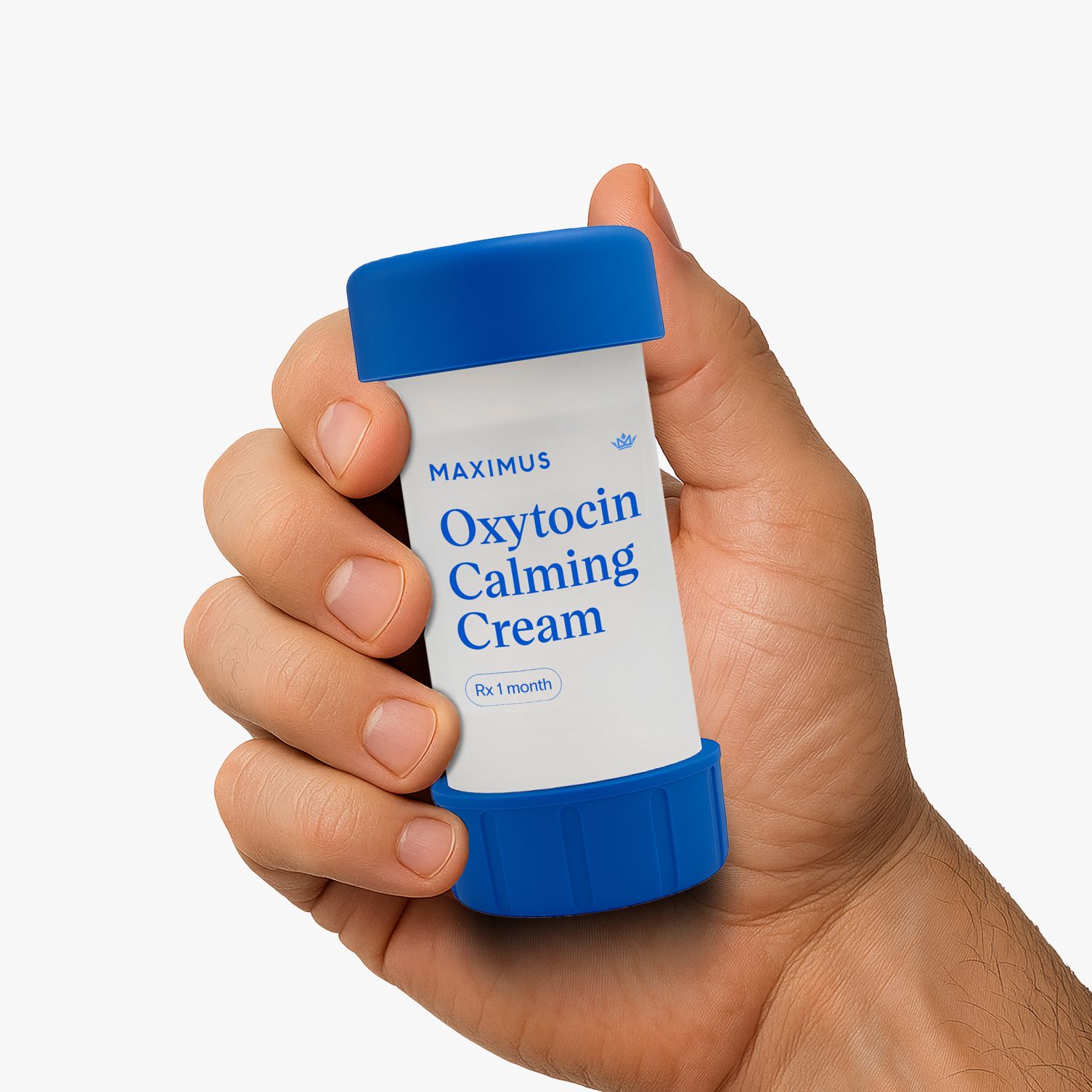Key takeaways:
- TRT is a common treatment for symptoms of low T, like low libido, erectile dysfunction, fatigue, and increased body fat.
- You may be a good candidate for TRT if you are struggling with low T symptoms, even if your total testosterone levels are “normal” according to current benchmarks.
- You may not be a good candidate for some forms of TRT if you have a pre-existing medical condition like heart disease or prostate cancer, or if you plan on having kids one day.
- When seeking doctors for testosterone therapy, be sure they test total and free testosterone levels, conduct a thorough medical assessment, and take all your symptoms into consideration before delivering a diagnosis.
If you’re a guy who is struggling with low libido, fatigue, or erectile dysfunction, there’s a chance your testosterone levels might be too low. Testosterone replacement therapy (TRT) is a common treatment for men with low T, but it isn’t for everyone. You may not be a good candidate for certain forms of TRT if you have a pre-existing medical condition or you plan on having kids one day.
At the same time, you may have received results from a testosterone test that read “normal,” but you’re dealing with common symptoms of low testosterone like those listed above. Can TRT help you, too?
Keep reading to find out when you should take TRT and when you should consider alternatives, and learn why it’s important to talk to your doctor about low T, even if you’ve received “normal” results on a testosterone test.
When should you start TRT, and who is it for?
TRT is a common treatment for men struggling with symptoms of low testosterone, whether these symptoms stem from testicular failure (primary hypogonadism) or a problem in the hypothalamus or the pituitary gland of the brain (secondary hypogonadism). Low testosterone can happen for many different reasons. Some people are born with a medical condition that causes low T, sometimes a testicular injury is at fault, and sometimes poor lifestyle habits drag your levels down.
No matter what’s causing your T levels to be low, TRT may help resolve associated symptoms, like:
- Decreased sex drive
- Erectile dysfunction
- Fatigue and weakness
- Reduced lean body mass and increased body fat
- Mood changes like irritability and depression
- Loss of body hair
While these symptoms can be indicative of low T levels, there are other health conditions your doctor must rule out before deciding on a diagnosis. Another important determining factor is a testosterone test. The American Urology Association (AUA) defines low testosterone as less than 300 nanograms per deciliter (ng/dL) for adults, but this figure alone doesn’t take into account a man’s age, symptoms, or lifestyle, which is why it’s so important to look beyond test results when considering treatment.
You may be a good candidate for TRT if you are dealing with low T symptoms, whether or not you have low, normal, or even high total testosterone levels, as long as your doctor deems it is the right choice for you.
Who might not want to take TRT?
There are many different forms of TRT: pills, injections, patches, gels, pellets, and others. Each form has its own set of benefits and risks you should always discuss with your doctor. But people in the following groups may be at higher risk for problems when taking TRT and should definitely chat with a doctor about any risks that could be involved, before starting treatment:
- You are at risk for heart disease, stroke, or prostate cancer: According to experts at Harvard, older research shows that TRT may increase the risk of cardiovascular issues and prostate cancer. However, those same experts note that in more recent clinical trials involving men with testosterone deficiency, there doesn’t seem to be a link between TRT and an increased risk of stroke, heart attack, or developing new prostate cancer. This is definitely a situation where you’ll want to speak with a doctor to find out whether TRT is safe for you.
- You have obstructive sleep apnea: Some research shows that TRT may worsen symptoms of obstructive sleep apnea. More research is needed to better understand how TRT might impact men with obstructive sleep apnea, if at all. But if you have obstructive sleep apnea your doctor will likely let you know that TRT could increase your symptoms. And if you start taking TRT, you’ll want to keep an eye out for any changes to your sleep apnea symptoms.
- You plan on having kids: TRT has long been associated with infertility due to its impact on testicular function and sperm production. But this isn’t true for all TRT products. Some formulations, like Maximus’ Oral TRT+ Protocol, are now compounded with fertility-preserving ingredients like enclomiphene.
Despite these risks, only you and your doctor can decide if TRT is the right choice for you. Be sure you team up with a board-certified physician who conducts a thorough medical assessment, complete with lab tests and a deep dive into your family history, and discusses the risks and benefits with you before writing you a prescription.
In addition to the risks mentioned above, side effects of TRT may include acne, hair loss, changes in libido, an increase in blood pressure, an increase in hematocrit and hemoglobin, and a slight increase in prostate-specific antigen (PSA).
What age should you start TRT?
If you’re wondering what age to start TRT, there’s no better time than the present if you’re facing symptoms of low T. While testosterone does decline with age, older men are not the only good candidates for TRT. Studies show that 20% of men aged 15-39 have low testosterone and they may respond well to testosterone therapy.
However, as mentioned above, if you are planning on having kids in the future, TRT may put your fertility at risk. You can either consider an alternative method to TRT like enclomiphene citrate, which increases testosterone without compromising fertility, or choose a TRT product that has been compounded with a medication like enclomiphene, like Maximus’ Oral TRT+ Protocol.
How to get a TRT prescription
If you’re wondering how to get TRT, you should know that it can only be obtained from a doctor. Do not trust any source that claims to offer testosterone therapy without a prescription, as you could end up with an unsafe or ineffective product.
Your doctor will likely test your testosterone levels, but it’s important to share all of your symptoms with them so they can make an informed decision. When discussing the testosterone therapy treatments available to you, ask about the risks and benefits of each one so you can make an informed decision, too.
Will doctors prescribe TRT if your levels are normal?
Some TRT doctors will not prescribe TRT if your levels read “normal” or above 300 ng/dL. However, it’s important to remember that many benchmark figures used to define normal testosterone levels were developed based on older participants, which means they are not entirely representative of the expected “normal” ranges in younger, healthy participants.
Even more, many testosterone tests only check for “total testosterone” levels instead of “free testosterone” levels. Free testosterone refers to the amount of testosterone in your body that is available for use, or bioavailable, which is a more accurate indicator of low testosterone.
Be sure to work with a doctor who, in addition to factoring in all your symptoms, conducts a comprehensive review of both your total and free testosterone levels, as well as other important hormones like sex hormone binding globulin (SHBG), albumin, and luteinizing hormone (LH) levels. And opt for blood tests over salivary tests, as they provide a fuller picture of your hormonal health.
If you choose Maximus’ Oral Testosterone Protocol, you’ll be connected with a board-certified physician who will take all of your symptoms into account. They’ll order a comprehensive blood test (which will be shipped directly to your door) to test all of your hormone levels, including free and total testosterone levels. If they determine that you are a good candidate for treatment, your prescription will also be shipped directly to you. From there, they’ll monitor you closely and conduct follow-up lab tests to make sure the protocol is working.
Is it safe to buy testosterone online?
It’s important to be selective when determining where to get your TRT. Not all telehealth providers who offer TRT will provide high-quality testosterone or high-quality care.
Maximus offers a high-quality Oral TRT+ Protocol that uses native testosterone, which is bio-identical to the testosterone your body naturally produces, and less suppressive on your testicles. In addition to a thorough medical assessment and comprehensive at-home blood tests, the protocol includes ongoing doctor monitoring, fertility-safe options, and peer coaching to help you get the most out of treatment.
When to consider testosterone alternatives
If your doctor determines that TRT is not the right choice for you, ask them about TRT alternatives like enclomiphene citrate. There are also a number of other lifestyle changes you can make right now to start improving your testosterone naturally. You should practice the following habits whether you are on TRT or not:
Find out more about how the Oral TRT+ Protocol works and book an appointment with one of our board-certified physicians to find out if it’s right for you.
Disclaimer: The contents of this article, including, but not limited to, text, graphics, images, and other information, is for information purposes only and does not constitute medical advice. The information contained herein is not a substitute for and should never be relied upon for professional medical advice. The content is not meant to be complete or exhaustive or to be applicable to any specific individual's medical condition. You should consult a licensed healthcare professional before starting any health protocol and seek the advice of your physician or other medical professional if you have questions or concerns about a medical condition. Always talk to your doctor about the risks and benefits of any treatment. Never disregard or delay seeking professional medical advice or treatment because of something you have read on this site. Maximus does not recommend, endorse, or make any representation about the efficacy, appropriateness, or suitability of any specific test, products, procedures, treatments, services, opinions, healthcare providers or other information contained herein. Maximus is not responsible for, nor will they bear any liability for, the content provided herein or any actions or outcomes resulting from or related to its use.





